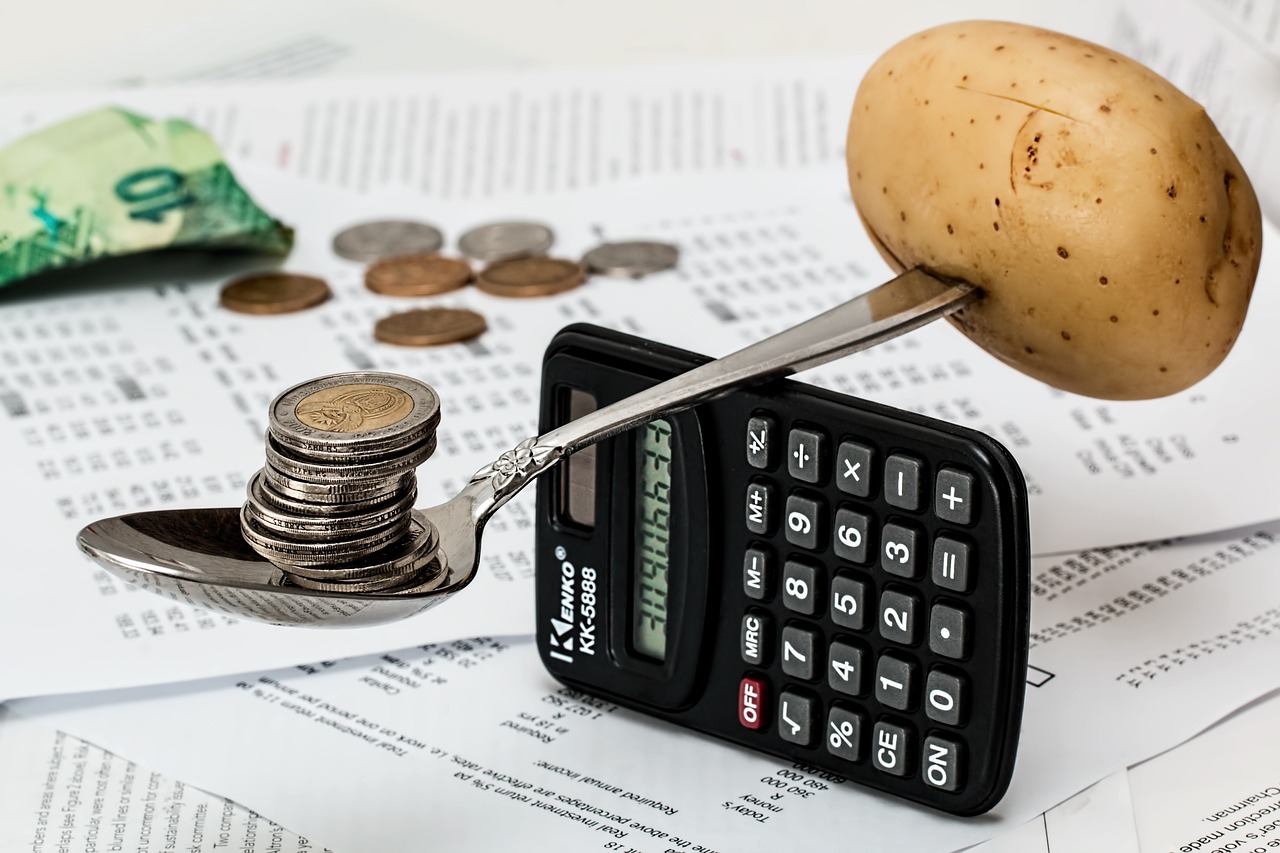In the mystical realm of personal finance, there exist some enchanted scrolls and talismans, commonly known as “important financial documents.” These aren’t just any old pieces of paper; they are the sacred texts that prove your existence in the financial universe!
The Magical Papers of Identity
1. The Identity Chronicles: Birth Certificates, Passports, and Social Security Cards
First and foremost, let’s talk about your birth certificate. This isn’t just a piece of paper; it’s your origin story, your very own superhero beginning! Keep it safe, because you’ll need it to prove that you didn’t just appear out of thin air.
Next, we have passports. This magical booklet not only lets you cross mystical borders but also proves your identity in the financial realm. Plus, it’s your ticket to those much-needed vacation quests!
And let’s not forget the all-mighty Social Security card. It’s like your financial social security number (pun intended). Guard it with your life, or at least with a really good safe.
2. The Scrolls of Property: Deeds and Titles
Own a castle or a mystical chariot (also known as a house and car)? Then you’ll have deeds and titles. These documents are like the royal decrees that proclaim your ownership. Lose them, and you might as well be a wandering nomad with no claim to your land or chariot.
3. The Ledger of Learning: Educational Certificates
Your diplomas and certificates are not just fancy wall decorations. They are proof of your quests and conquests in the land of education. Whether you’re a wizard with a PhD or a knight with a trade certification, these documents can be crucial in your career journey.
4. The Financial Grimoires: Tax Returns, Wills, and Insurance Policies
Ah, tax returns, the yearly ritual where you settle your dues with the tax wizards. Keeping these records is essential, especially if you’re audited or need to prove your income for a loan to buy that dreamy dragon (or a house).
Wills are like the treasure maps you leave behind, guiding your heirs to your financial treasures (or debts, but let’s stay positive).
And insurance policies? They’re your magical shields against disasters, protecting your castle, chariot, and even your health from unexpected calamities.
The Enchanted Forest of Regular Finance
As we continue our quest through the dense thicket of personal finance, we come across some everyday, yet mystical documents that keep the gears of your financial life turning (and sometimes grinding).
5. The Never-Ending Story of Bank Statements
Ah, bank statements, the monthly saga that tells the tale of your financial comings and goings. They’re like a diary, but instead of secrets and crushes, they’re filled with transactions and balances. Keep them close, for they are the breadcrumbs that trace your path through the forest of spending and saving.
6. The Chronicles of Investment: Stocks, Bonds, and Retirement Accounts
In the land of investments, there are many scrolls to be kept. Stock certificates, bond papers, and retirement account statements are the artifacts that show your prowess as a financial warrior. They tell tales of battles won and lost in the stock market and are crucial for planning your retirement feast.
7. The Mysterious Manuscripts of Loans and Mortgages
Loans and mortgages are like the quests you undertake in the finance realm. These documents are your quest logs, detailing the terms, conditions, and the epic journey of repayment. Lose these, and you might forget a crucial detail, like that hidden interest rate dragon waiting to breathe fire on your finances.
8. The Cryptic Codes of Credit Reports
Credit reports are the mystic mirrors that reflect your financial reputation. These arcane texts are consulted by loan wizards and credit sorcerers to judge your worthiness. Keep an eye on them to ensure no dark spells (like errors or identity theft) tarnish your good name.
9. The Sacred Scripts of Employment: Pay Stubs and Employment Contracts
These are the scrolls that prove your valor in the workforce. Pay stubs show your regular contributions to the kingdom’s treasury (and how much the king takes back in taxes), while employment contracts outline the terms of your servitude… I mean, employment.
The Labyrinth of Lesser-Known Financial Tomes
As we delve deeper into the catacombs of personal finance, we stumble upon a trove of lesser-celebrated, yet equally important documents. These are the scrolls that often get lost in the clutter of your dragon’s den (also known as your home office).
10. The Receipt Scrolls: Proof of Purchase and Expenditure
Receipts: these little slips of paper are like the breadcrumbs Hansel and Gretel should have used – they don’t get eaten by birds and can lead you back through your spending habits. They’re the unsung heroes when you need to return that cursed toaster or prove that you did indeed buy that enchanted armor (a.k.a. the new suit for your job interview).
11. The Warranty Writs: Guardians of Your Treasures
Warranties are like the protectors of your kingdom’s assets. They’re the spells that bind the merchants to replace or repair your goods if they turn rogue and stop working. Keep these safe, or you might end up with a rebellious appliance uprising with no help in sight.
12. The Manuals of Mystical Appliances and Services
Instruction manuals, while not exactly financial documents, are the guides to mastering the magical items in your realm. They might not help in filing taxes, but try fixing that bewitched dishwasher without one, and you’ll realize their true value.
13. The Archives of Healthcare: Medical Records and Bills
In the world of health, documents are like the potions and spells for maintaining your well-being. Medical records and bills are crucial, especially when dealing with the health insurance warlocks or when embarking on a quest to understand that mysterious ailment you got from the last adventure.
14. The Parchments of Philanthropy: Donation Receipts
Donation receipts are your proof of being a good samaritan in the land of finance. These help in claiming tax deductions and in proving that you did indeed donate to the Save the Dragons Foundation.
Mastering the Art of Document Organization
As we approach the end of our epic tale, it’s time to unveil the most guarded secret in the realm of personal finance – the art of document organization. This is where heroes are made and legends are born (or at least where you find that insurance policy when you really need it).
15. The Fortress of Filing: Creating a System of Order
Building a filing system is like constructing your own financial fortress. Categorize your documents into sections like Identity, Property, Investments, Loans, and Receipts. Label them as if you were a librarian obsessed with order in a world of chaos. A well-organized file is your first defense against the dark arts of losing stuff.
16. The Digital Realm: Embracing the Cloud
In this modern era of wizardry, the cloud is your ally. Scan and upload your important documents into secure cloud storage. Just like a spell of preservation, it ensures that your documents survive disasters like fire, flood, or an accidental coffee spill on your paperwork.
17. The Ritual of Regular Updates
Your financial documents are living entities; they evolve. Regularly update your files, especially after major life events like buying a new castle, slaying the dragon of debt, or adding a little apprentice to your family (having a baby, that is). An outdated document is as useful as a map to a vanished kingdom.
18. The Safeguarding Spells: Protecting Your Documents
Protect your documents like a dragon hoards its gold. Use safes for physical documents and strong passwords for digital files. Remember, in the wrong hands, these documents can be used to cast identity theft curses on you.
19. The Legacy Ledger: Informing Your Heirs
Ensure that your heirs know where your documents are kept. You don’t want them embarking on a quest to find your will or insurance policies when you’re no longer around to give them the treasure map.
20. The Purge Ritual: Knowing What to Keep and What to Discard
Not all documents are meant to be kept forever. Know the lifespan of each document. Keep tax returns and important financial documents for at least seven years, but routine bills and receipts can be discarded once verified or after the warranty expires.
As our journey concludes, remember that the realm of personal finance is fraught with peril for the unprepared, but for those armed with organization, knowledge, and a good filing system, it is a land of opportunity and security. May your files be ever organized, your documents ever safe, and your financial narrative ever victorious. Farewell, brave adventurers, and may your financial journey be as epic as the tales of old!
FAQs: Navigating the World of Financial Documents
In the thrilling world of taxes, it’s wise to keep your returns and all supporting documents for at least seven years. This ensures you’re ready for any unexpected quest, like an audit by the tax wizards.
Absolutely! Storing documents in the digital realm (like cloud storage) is like casting a protection spell on them. Just make sure your cloud is guarded by strong passwords and two-factor authentication to keep the digital dragons at bay.
While it might be tempting to hoard receipts like a dragon hoards gold, you only need to keep those related to warranties, major purchases, or tax-deductible expenses. Regular grocery receipts can be banished (disposed of) unless they’re part of your budget-tracking quest.
Create your own financial kingdom with clearly labeled folders – physical or digital. Categorize them under realms like Identity, Property, Investments, and so on. Regularly update your kingdom to ensure no document goes rogue.
For documents that have served their purpose and are no longer needed, a purge ritual (shredding for physical documents, secure deletion for digital ones) is in order. This keeps your financial realm free from clutter and potential threats.
Protecting your physical documents requires a fortress-like approach. A fireproof and waterproof safe is your best ally in guarding these treasures from the elements and unexpected calamities.
All documents are important in their own right, but if there were a crown jewel, it would be your identity documents (like your passport, birth certificate, and social security card). These are the keys to your financial kingdom.
Yes, it’s wise to inform a trusted knight or sorceress (a family member or close friend) about the location of your important documents. This is especially crucial for documents like wills and insurance policies.
In many cases, digital copies are sufficient, but it’s a noble idea to keep physical copies of crucial documents like deeds, birth certificates, and marriage certificates. The digital world is convenient, but sometimes the old ways hold strong power.
Embark on the quest of reviewing and updating your financial documents at least once a year or after major life events like purchasing a new castle, a change in your wizarding career, or the arrival of a new apprentice in your family.



